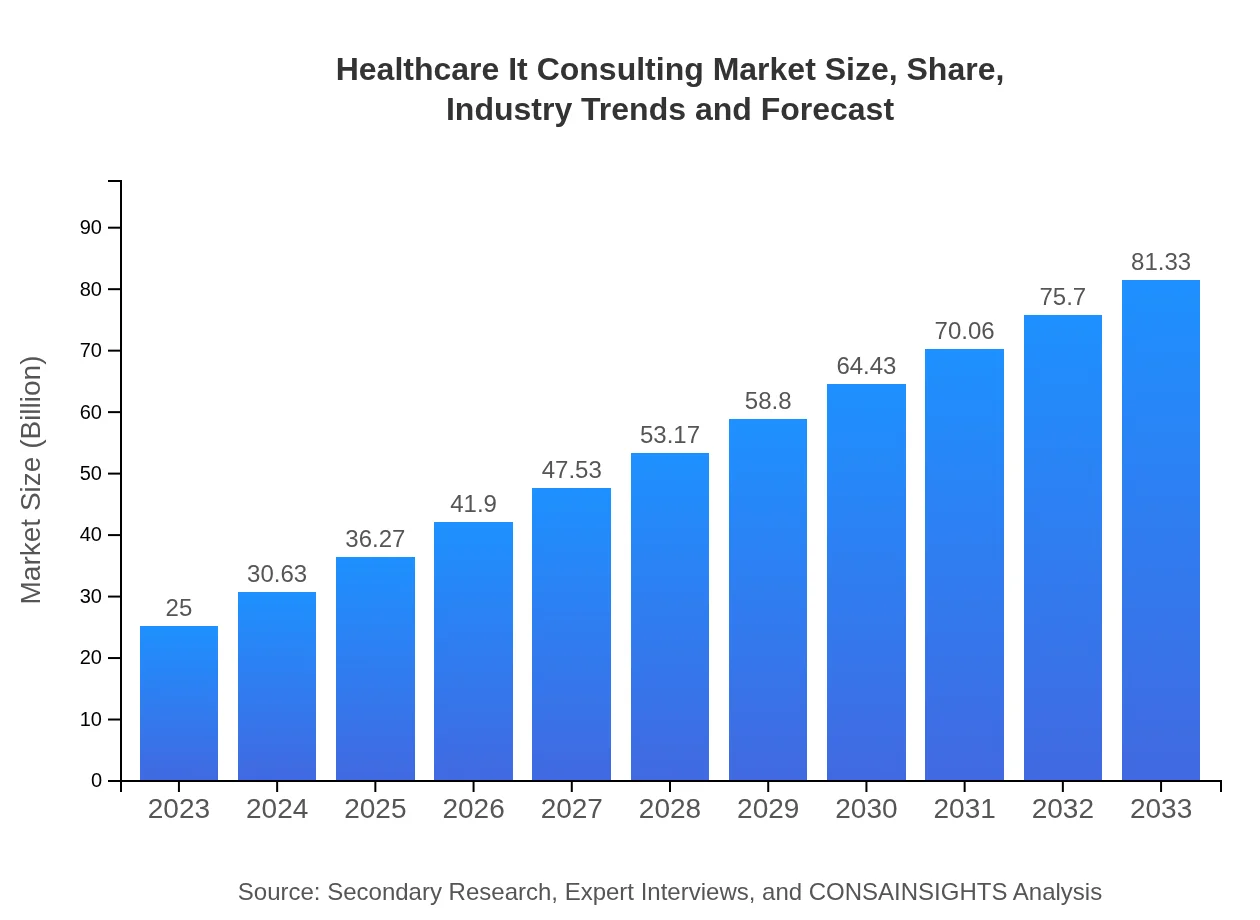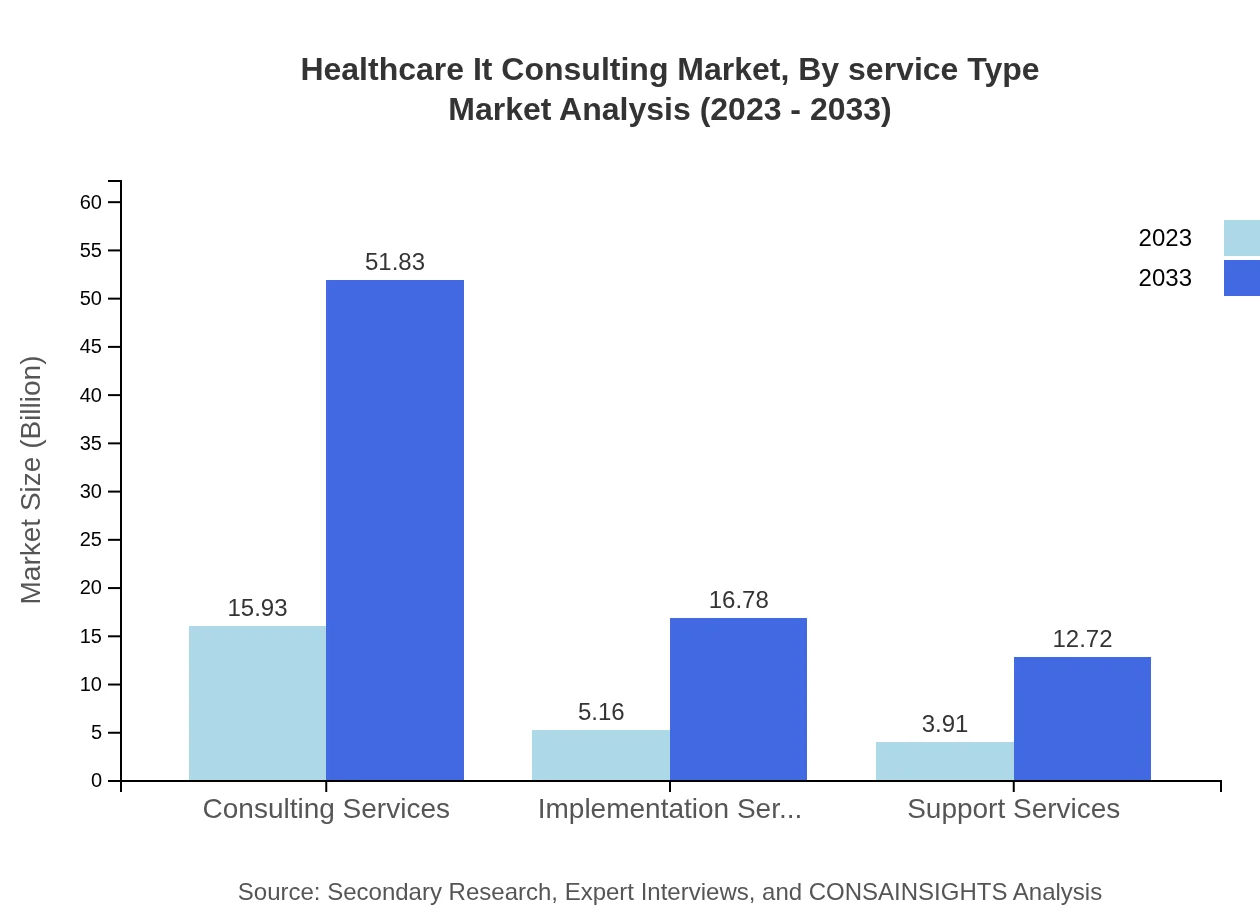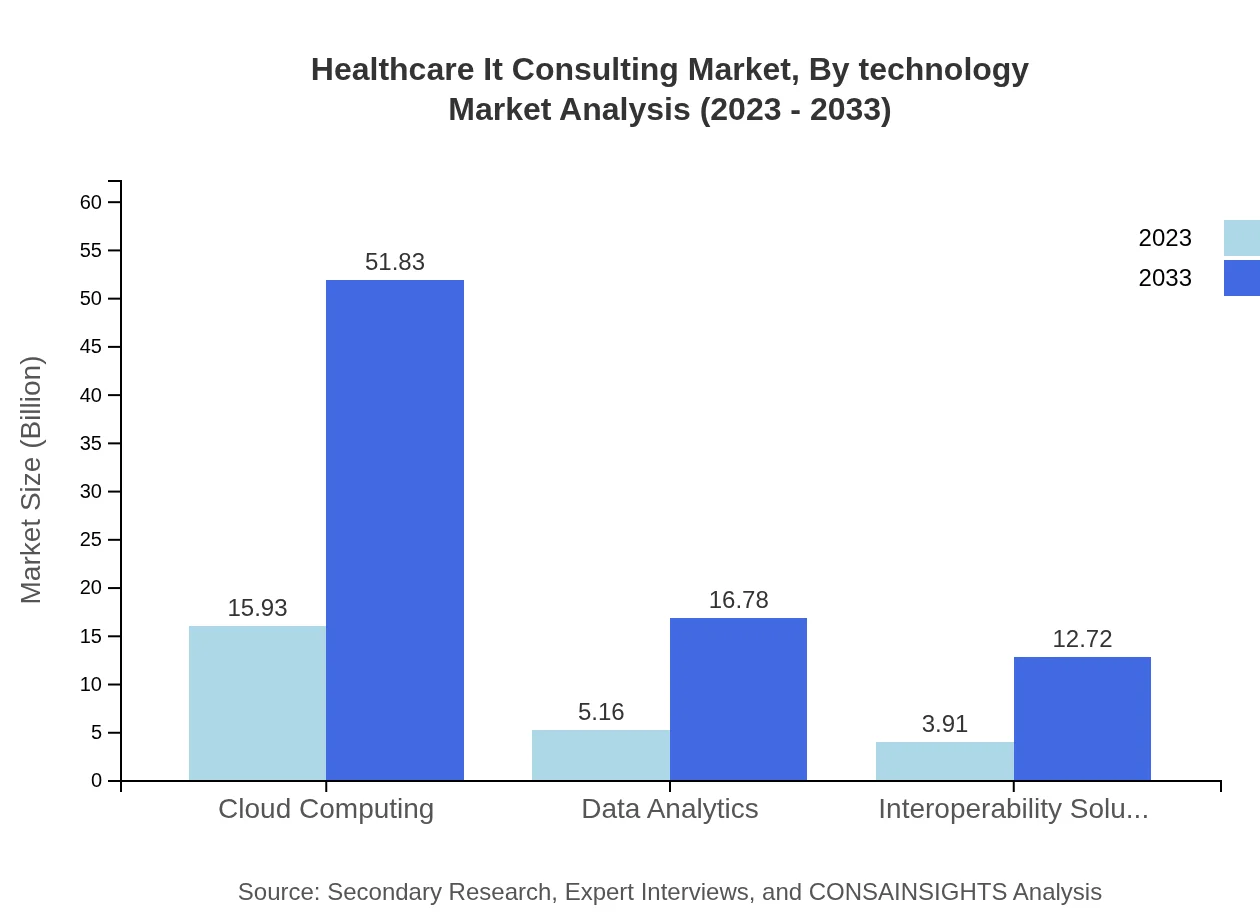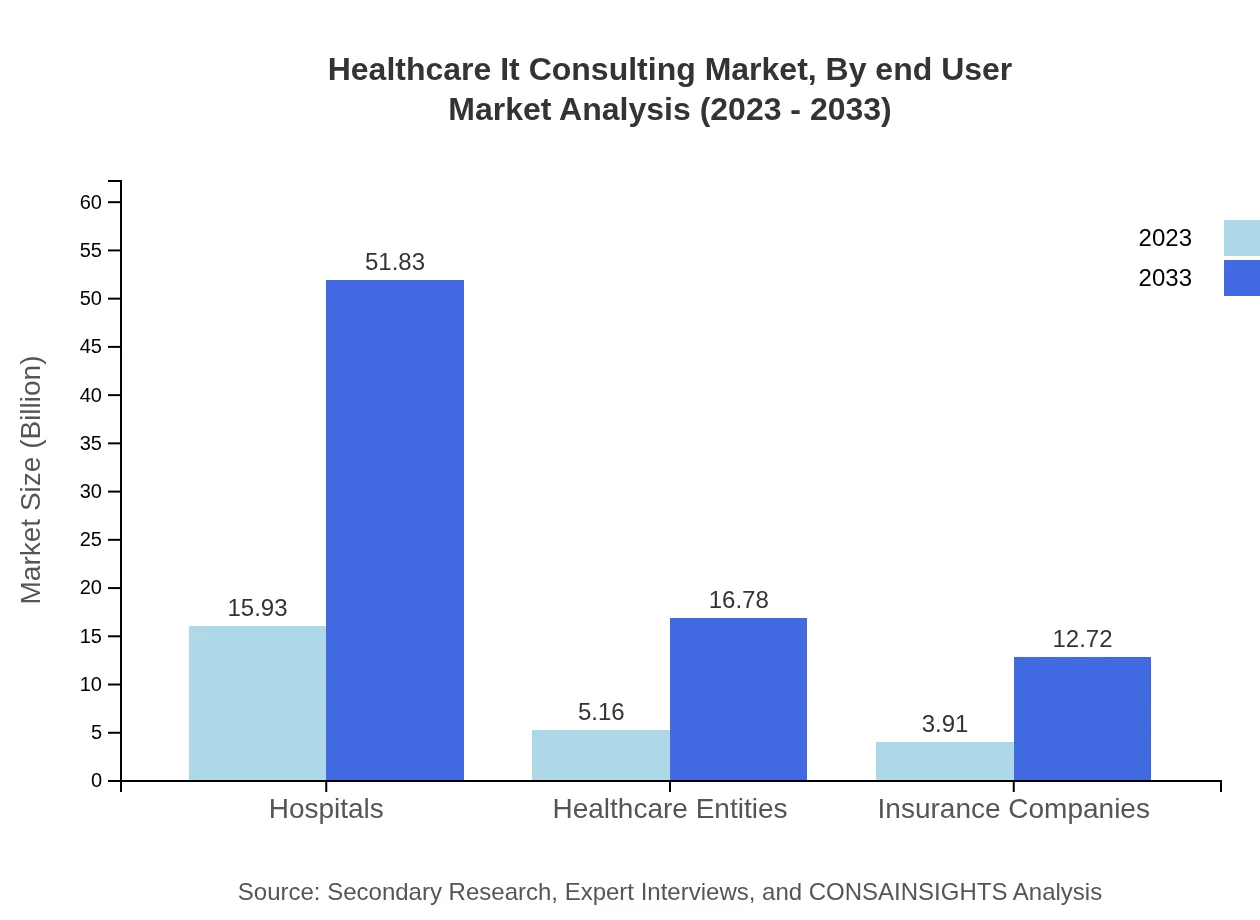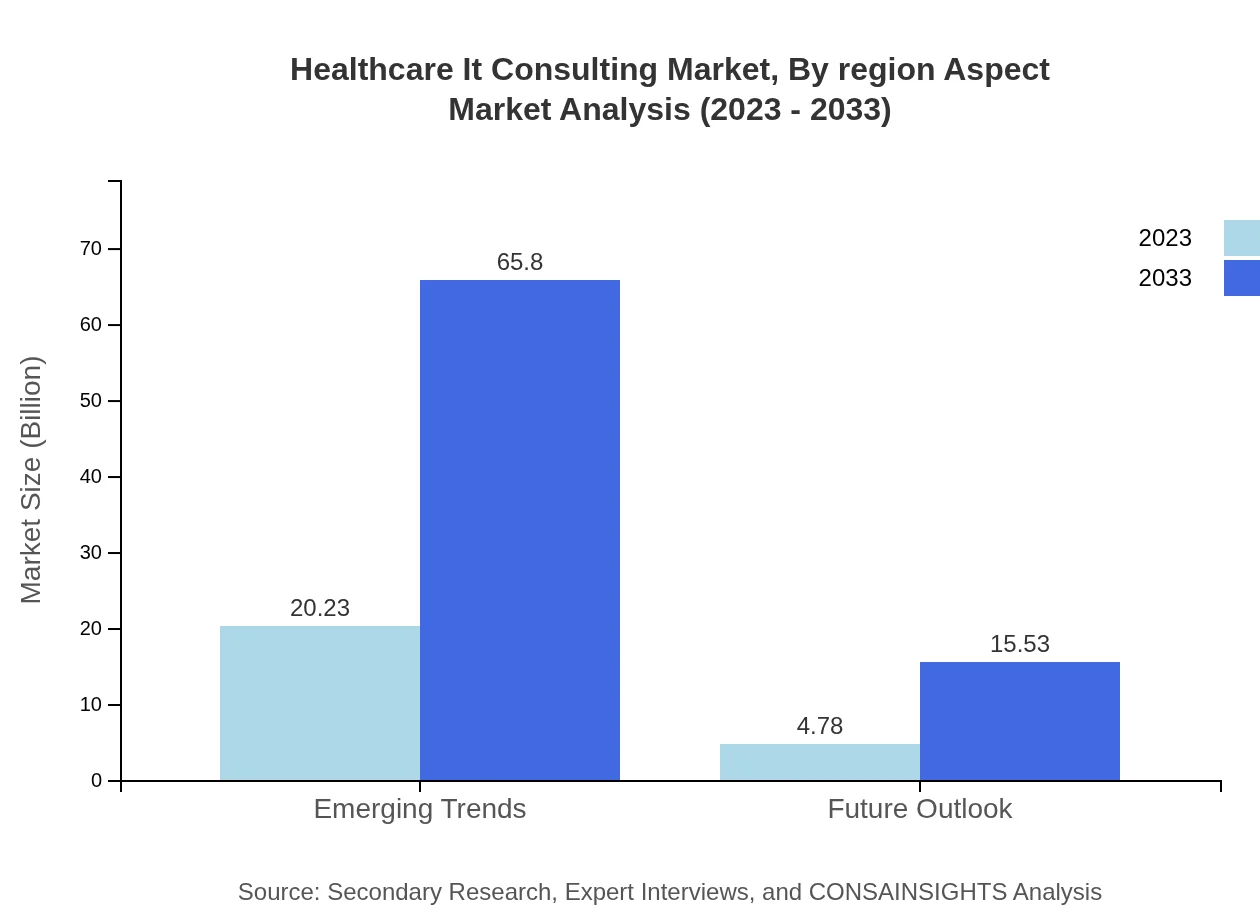Healthcare It Consulting Market Report
Published Date: 31 January 2026 | Report Code: healthcare-it-consulting
Healthcare It Consulting Market Size, Share, Industry Trends and Forecast to 2033
This report presents a comprehensive analysis of the Healthcare IT Consulting market from 2023 to 2033, offering insights into market size, growth rates, industry trends, and key players within the sector.
| Metric | Value |
|---|---|
| Study Period | 2023 - 2033 |
| 2023 Market Size | $25.00 Billion |
| CAGR (2023-2033) | 12.0% |
| 2033 Market Size | $81.33 Billion |
| Top Companies | Accenture, Cognizant, Deloitte, McKinsey & Company, IBM Watson Health |
| Last Modified Date | 31 January 2026 |
Healthcare IT Consulting Market Overview
Customize Healthcare It Consulting Market Report market research report
- ✔ Get in-depth analysis of Healthcare It Consulting market size, growth, and forecasts.
- ✔ Understand Healthcare It Consulting's regional dynamics and industry-specific trends.
- ✔ Identify potential applications, end-user demand, and growth segments in Healthcare It Consulting
What is the Market Size & CAGR of Healthcare IT Consulting market in 2023?
Healthcare IT Consulting Industry Analysis
Healthcare IT Consulting Market Segmentation and Scope
Tell us your focus area and get a customized research report.
Healthcare IT Consulting Market Analysis Report by Region
Europe Healthcare It Consulting Market Report:
Europe's Healthcare IT Consulting market is forecasted to grow from $7.30 billion in 2023 to $23.75 billion by 2033, aided by increasing regulatory pressures and demand for efficient healthcare delivery models.Asia Pacific Healthcare It Consulting Market Report:
In the Asia Pacific region, the Healthcare IT Consulting market was valued at approximately $4.43 billion in 2023 and is projected to reach $14.40 billion by 2033. Factors driving this growth include increasing healthcare expenditure, coupled with rapid technological adoption and a rising focus on digitizing healthcare services.North America Healthcare It Consulting Market Report:
North America, leading the market with a value of $9.53 billion in 2023, is projected to broaden significantly to $30.99 billion by 2033. The growth is supported by a well-established healthcare infrastructure, high adoption rates of healthcare IT solutions, and government initiatives that promote health IT as a priority.South America Healthcare It Consulting Market Report:
South America is expected to witness significant growth, with the market estimated at $2.21 billion in 2023 and anticipated to reach $7.20 billion by 2033. Collaborative efforts between public and private sectors to improve healthcare systems and technology integration are key growth drivers.Middle East & Africa Healthcare It Consulting Market Report:
The Middle East and Africa region is witnessing gradual growth, with the market valued at $1.53 billion in 2023, expected to reach $4.99 billion by 2033. Investment in healthcare infrastructure and a shift towards interoperable health systems are influencing market dynamics.Tell us your focus area and get a customized research report.
Healthcare It Consulting Market Analysis By Service Type
The Healthcare IT Consulting market's service type segment shows strong performance. Hospitals represent a major share, estimated at $15.93 billion in 2023, expected to grow to $51.83 billion by 2033. Other critical segments are healthcare entities, insurance companies, and consulting services, all reflecting similar growth patterns as organizations seek to enhance their operational capabilities and patient care.
Healthcare It Consulting Market Analysis By Technology
With the advance of technologies such as cloud computing, data analytics, and interoperability solutions, each segment is experiencing exponential growth. Cloud computing, valued at $15.93 billion in 2023, is projected to grow to $51.83 billion by 2033, underscoring the industry's move towards scalable and flexible IT solutions.
Healthcare It Consulting Market Analysis By End User
End-users, primarily hospitals, account for the largest share and growth within the market. For example, hospitals are projected to increase from a market size of $15.93 billion in 2023 to $51.83 billion by 2033, while healthcare entities and insurance providers follow suit, ensuring their operational readiness and compliance with emerging trends.
Healthcare It Consulting Market Analysis By Region Aspect
Emerging trends indicate a shift towards digital health solutions, with a growing consumer preference for telemedicine, remote patient monitoring, and healthcare applications, driving future market behaviors. As the sector evolves, the need for consultants familiar with these technologies will grow, further expanding market opportunities.
Healthcare IT Consulting Market Trends and Future Forecast
Tell us your focus area and get a customized research report.
Global Market Leaders and Top Companies in Healthcare IT Consulting Industry
Accenture:
Offers comprehensive consulting services across healthcare sectors, leveraging advanced analytics and digital technologies to improve health outcomes.Cognizant:
Provides IT consulting and services aimed at transforming healthcare organizations through innovative IT strategies and solutions.Deloitte:
Leads in healthcare consulting, focusing on strategic solutions and IT integration aimed at enhancing operational efficiency.McKinsey & Company:
Specializes in consulting implementations across various healthcare domains, utilizing data-driven strategies to optimize client performance.IBM Watson Health:
Integrates data and analytics to offer consulting services designed for healthcare organizations to optimize patient care and operational processes.We're grateful to work with incredible clients.









FAQs
What is the market size of healthcare IT consulting?
The global healthcare IT consulting market is valued at $25 billion in 2023, with a projected CAGR of 12.0%. This growth reflects increased demand for technology solutions in healthcare, enhancing service delivery and operational efficiency.
What are the key market players or companies in the healthcare IT consulting industry?
Key players in healthcare IT consulting include major consultancy firms like Accenture, Deloitte, and IBM, which provide technology and strategy solutions to healthcare organizations, improving their IT infrastructures and patient care services.
What are the primary factors driving the growth in the healthcare IT consulting industry?
The growth in healthcare IT consulting is primarily driven by increasing digitization in healthcare, regulatory changes, demand for improved patient outcomes, and the necessity for efficient data management and interoperability among healthcare systems.
Which region is the fastest Growing in the healthcare IT consulting market?
North America is the fastest-growing region in the healthcare IT consulting market, projected to expand from $9.53 billion in 2023 to $30.99 billion by 2033, driven by technological advancements and high healthcare expenditure.
Does ConsaInsights provide customized market report data for the healthcare IT consulting industry?
Yes, ConsaInsights specializes in providing tailored market report data for the healthcare IT consulting industry, allowing stakeholders to obtain specific insights relevant to their unique business needs and strategies.
What deliverables can I expect from this healthcare IT consulting market research project?
Deliverables include a comprehensive market analysis report, detailed segment data, competitive landscape insights, trend forecasts, and actionable recommendations, tailored to assist businesses in strategic decision-making.
What are the market trends of healthcare IT consulting?
Key market trends include the rise of cloud computing, increasing use of data analytics, a focus on interoperability solutions, and sustained investment in emerging technologies, enhancing operational efficiencies in healthcare delivery.

